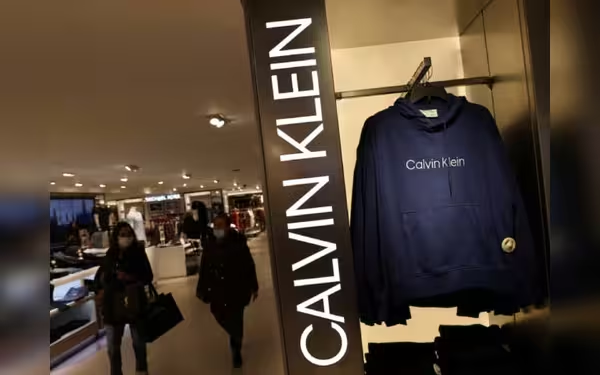Saturday, November 16, 2024 05:50 PM
China Investigates Calvin Klein Over Xinjiang Cotton Stance
- China probes Calvin Klein for Xinjiang cotton boycott.
- Investigation highlights global human rights concerns.
- Calvin Klein faces pressure on ethical sourcing.
 Image Credits: tribune.com.pk
Image Credits: tribune.com.pkChina investigates Calvin Klein over its boycott of Xinjiang cotton amid rising human rights concerns.
In recent developments, China has initiated an investigation into the popular fashion brand Calvin Klein regarding its stance on cotton sourced from the Xinjiang region. This action highlights China's growing sensitivity to accusations from Western nations and human rights organizations about alleged forced labor practices involving the Uyghur ethnic group in Xinjiang. The scrutiny comes after the United States imposed a ban on imports from Xinjiang in 2021, citing serious concerns over forced labor.
The Xinjiang region has been at the center of international controversy for several years. Reports have surfaced claiming that the Chinese government has detained over a million Uyghurs and other Muslim minorities in what it describes as “re-education camps.” These allegations have raised significant alarm among human rights advocates, who argue that forced labor is being used in the production of cotton and other goods in the region.
Calvin Klein, like many other global brands, has faced pressure to ensure that its supply chains are free from any human rights abuses. The brand's investigation by Chinese authorities may be seen as a direct response to its commitment to boycott Xinjiang cotton, which has become a contentious issue in the fashion industry. This situation illustrates the complex interplay between global commerce and human rights, where companies must navigate the expectations of consumers and the regulatory environments of different countries.
As the investigation unfolds, it raises important questions about corporate responsibility and ethical sourcing. Consumers today are more informed and concerned about the origins of the products they purchase. Brands that fail to address these issues may find themselves facing backlash from their customer base. On the other hand, companies that take a stand against forced labor and promote transparency in their supply chains can build trust and loyalty among consumers.
The investigation into Calvin Klein serves as a reminder of the ongoing challenges in the global supply chain, particularly concerning human rights. As the world becomes increasingly interconnected, it is crucial for brands to prioritize ethical practices and ensure that their operations do not contribute to human suffering. The outcome of this investigation may not only impact Calvin Klein but could also set a precedent for how other companies approach their sourcing practices in the future.













